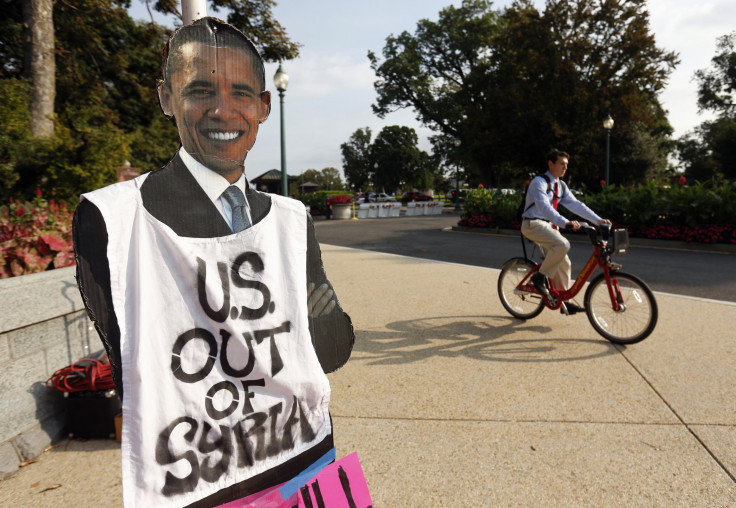ISIS Beheading Video Prompts Criticism Of Obama's Foreign Policy In Syria

At least two senators have used the White House's reaction to the Islamic State’s release of beheading videos to criticize President Barack Obama’s foreign policy decisions in the Middle East. In comments Tuesday, they called on his administration to “act decisively” to combat the Sunni extremist group's growing threat in Syria and Iraq.
Sen. Lindsey Graham (R-South Carolina) and Sen. Bill Nelson (D-Florida) issued statements following the release on Tuesday of the latest video allegedly showing the beheading of U.S. journalist Steven Joel Sotloff. The senators urged the White House to waste no time crushing the Islamic State, formerly known as the Islamic State in Iraq and Syria, or ISIS. Obama boarded a flight to Europe on Tuesday after ignoring a reporter's questions about the latest Islamic State video, according to Business Insider.
"Mr. President, if you can’t come up with a strategy, at least tell us what the goal is regarding (ISIS)," Graham reportedly said, in a statement released Tuesday.
Graham was referencing Obama’s remark in a press briefing last week where the president said the White House had no strategy yet with regards to the Islamic State in Syria. Press Secretary Josh Earnest was quick to clarify the remarks and told CNN that there was a general strategy, just no specific military plan in place yet.
Nelson said he would introduce his own legislation, rather than call on the White House to act, giving Obama congressional authority to bomb ISIS in Syria, according to Politico. The Constitution states that only Congress has the right to initiate a war, but authorizing targeted air strikes falls into grey area.
“This will ensure there’s no question that the president has the legal authority he needs to use airstrikes in Syria,” Nelson said. “We must go after ISIS right away because the U.S. is the only one that can put together a coalition to stop this group that’s intent on barbaric cruelty.”
Obama said he and the world were “appalled” by the previous Islamic State video, showing the beheading of U.S. journalist James Foley, and came in for criticism after he went on to play golf at Martha’s Vineyard, following the announcement.
After ISIS released the second video Tuesday, Obama authorized an additional 350 military personnel to be sent to Iraq, but has yet to make a decision about ISIS strongholds in Syria. Both beheading videos appear to have been shot in Syria and multiple U.S. military authorities have said attacking ISIS in Syria is the only way to defeat the militant group.
Obama, without congressional approval, authorized air strikes on ISIS strongholds in Iraq earlier this month, focusing on Kurdish areas where ISIS has seized Iraqi resources. One such resource, the Mosul Dam, was mentioned in the recent beheading video in which the executioner claims Sotloff's death is in retaliation to U.S. strikes on the dam.
When asked in a press briefing why the U.S. continued to bomb the dam area, Pentagon Press Secretary Rear Adm. John Kirby said, “Because ISIL [ISIS] keeps trying to take it back.”
Syria presents a more complicated situation for the White House.
Obama said last week that he would ask Congress to vote on U.S. intervention. Last year, Congress was not so quick to support air strikes in Syria when the goal was to eliminate Syrian President Bashar Assad’s chemical weapons. When Obama asked Congress to vote on military action in Syria, the vote was postponed several times and at least once because many Senate lawmakers opposed the decision.
“The military strategy, with respect to the Middle East, also has been very clear, and it's not just something that we just started doing,” Kirby said. “We've been going after terrorist networks in that part of the world for more than a decade, with very good success. Doesn't mean it's been eliminated, but we certainly have been very active and very energetic, and the objectives have been very, very clear.”
© Copyright IBTimes 2025. All rights reserved.






















